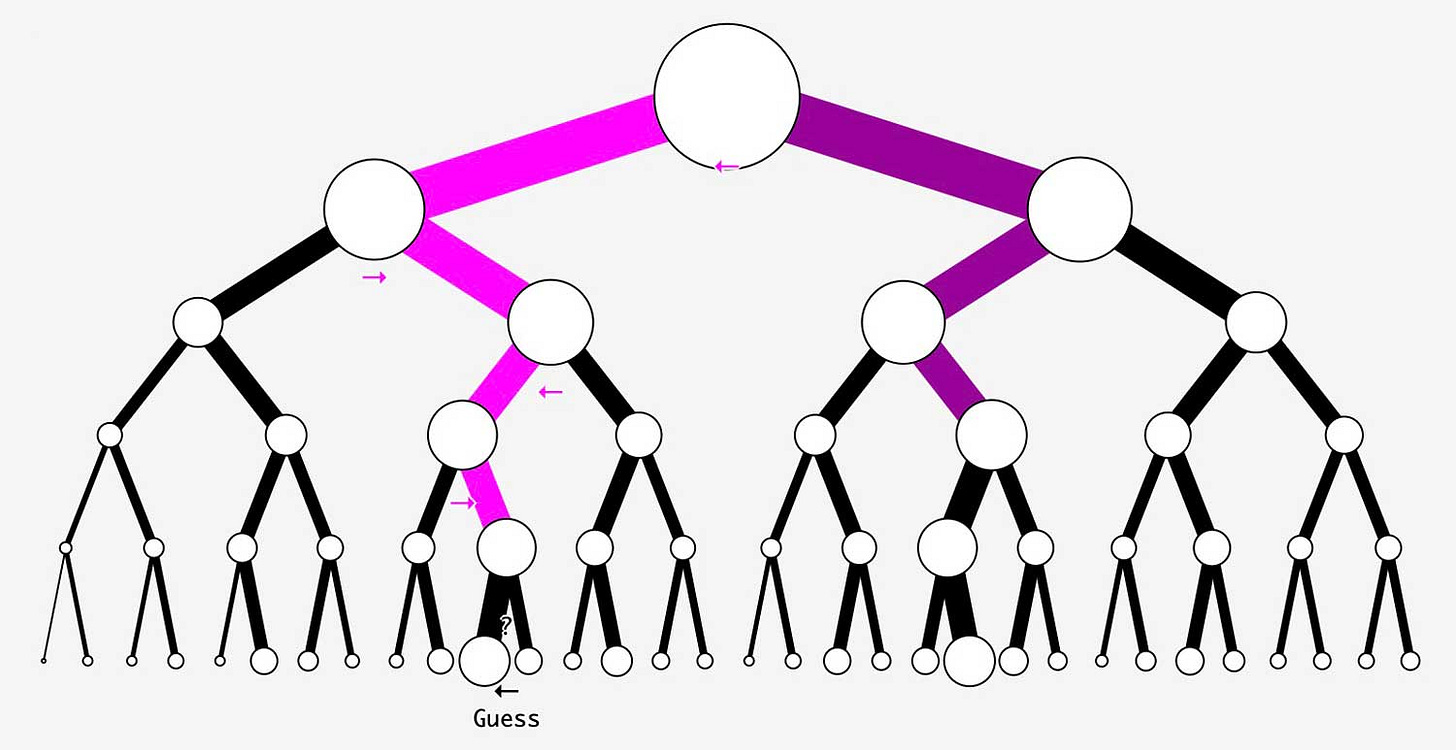If you are stumped about holiday gifts this year, how about giving your friend or loved one a one-year gift subscription to The Magnet?
The Aaronson Oracle is a simple algorithm that tests your ability to be unpredictable. It works like this: you press the left and right arrow keys on your keyboard in what you believe is a random pattern. As you do this, the Oracle attempts to predict your next move. Most people find that the Oracle can predict their choices with surprising accuracy, often around 70%.
Are you curious to see if you can outsmart it? Head over here and try pressing the left and right arrow keys as randomly as you can. The program will show you a percentage indicating its accuracy in predicting your key presses.
When I tried it, after a couple of hundred presses, the program's score was an impressive 71%. It turns out that intuitively generating randomness is not as easy as it might seem.
Next, I decided to mix things up a bit and “cheat” using a random binary number generator, which gave me this sequence:
11100100011101010010000110001010
10100100001011101111011101101001
10010100101010101101001100111100
01111111111110110100110110001011
10010010010100011000100011110111
Starting the test over with this sequence, I used 0 for the left arrow and 1 for the right arrow. This time, the computer's accuracy dropped to only 44%. What this experiment revealed is that my ability to consciously create a random binary string is pretty dismal.
This got me thinking — is there a way to mentally flip a coin? Can we generate a random number just using our minds? The book Mindhacker: 60 Tips, Tricks, and Games to Take Your Mind to the Next Level, by Ron Hale-Evans and Marty Hale-Evans, offers a technique to mentally roll a 6-sided die. You could use this method by assigning even numbers to the left arrow and odd numbers to the right arrow. Online, I discovered several other creative approaches to mentally generating randomness.





